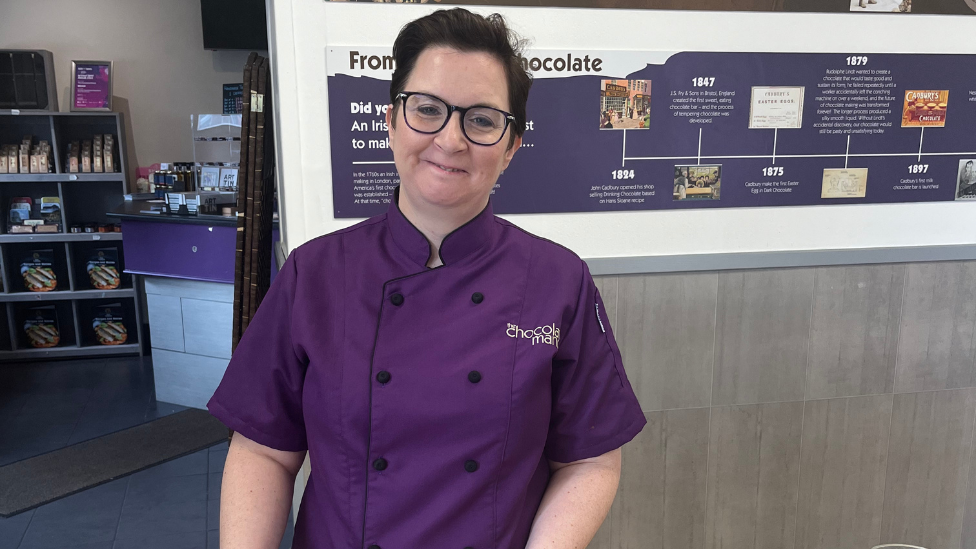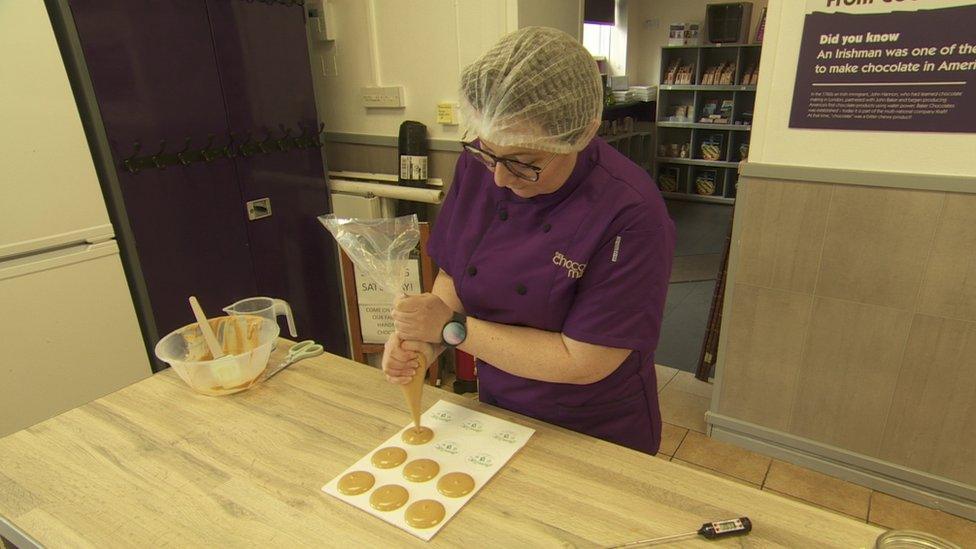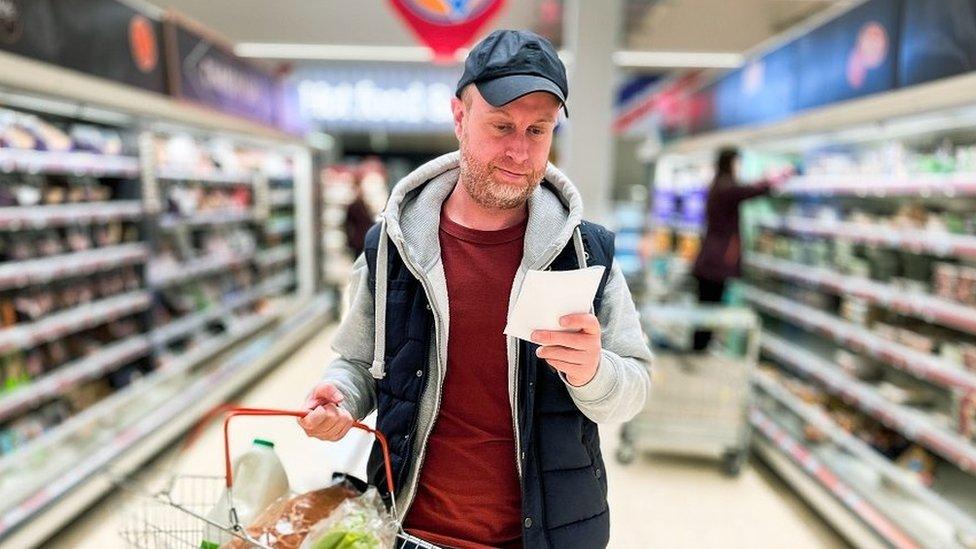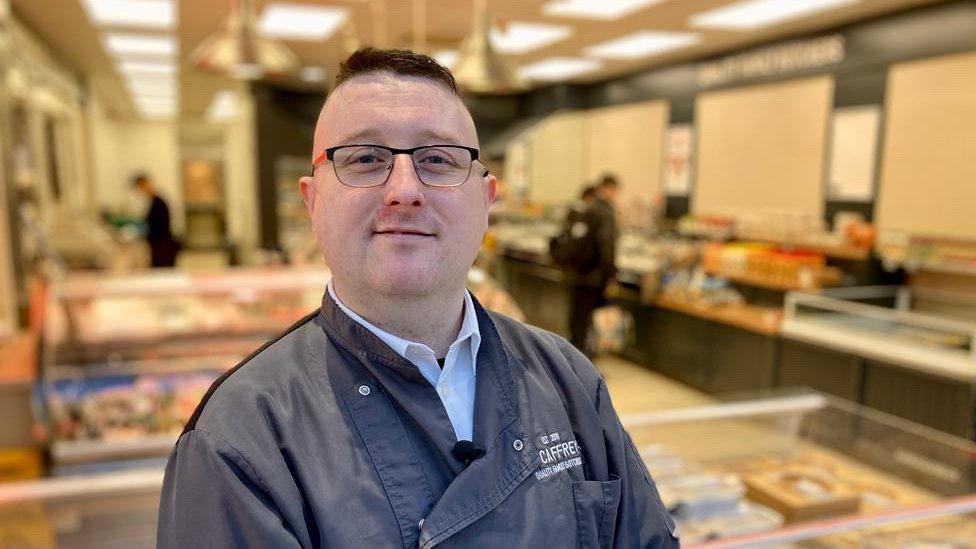Inflation: Chocolatiers fear for future amid rising costs
- Published
- comments

Geri Martin has seen significant increases in costs
A chocolatier from County Londonderry has warned of the impact of spiralling global cocoa prices.
Geri Martin, who is based in Castlerock, said her business would not survive unless she put up her prices.
The latest UK economy figures, announced on Wednesday, show inflation fell to 3.4% in February.
However, that does not mean prices have stopped increasing for businesses and consumers - they are just rising less quickly than they were previously.
And while the overall inflation rate has fallen, costs for cocoa - a key ingredient for making chocolate - are continuing to soar.
Global cocoa prices have doubled since the start of this year.
Prices hit a record high due to dry weather hurting crops in West Africa.
That is already filtering through to consumers and putting the squeeze on chocolate makers.

Geri Martin makes says her small business does not have the reserves to stockpile ingredients
Ms Martin has seen significant increases in the cost of supplies, for example a 10kg bag of dark chocolate has risen from £74 to £95.
If her own bars of chocolate which are currently £2.95, were to increase at the same rate, that would mean raising the price by 29% to £3.75 for a bar.
She said: "We are actually going to have to put our prices up in the next couple of weeks. There is no way we could survive with these price increases that are being passed on.
"If you go back to the cocoa, per tonne, when it used to come in it was £1,400 per tonne, it's now £5,000 per tonne so that price is being passed on to us, so we aren't going to have an option but to pass it on."

What is happening to UK inflation?
The latest figures show that inflation - the rate at which prices are rising in the UK - fell to 3.4% in February.
That figure is slightly down from the rate of 4% that was recorded in January.
It means that although prices are still increasing in the overall economy, the pace at which they are going up has slowed.
It also means that the cost of living has hit its lowest level since September 2021, when inflation stood at 3.1%.
It has been a volatile few years for UK businesses and their customers, as price rises began to outstrip annual pay rises, leaving consumers feeling poorer.
During that volatile period, price rises peaked in October 2022 when inflation hit double digits at 11.1% - the highest rate for 40 years.
The Bank of England has a long-standing target to try to maintain inflation at 2%, meaning the current rate of 3.4% is still too high.

'How can we survive?'
Ms Martin said: "Unfortunately prices are going up right across the board, if we are all going to survive this."
She said her small business is more exposed because it doesn't have the cash reserves to stockpile before further price rises.
"I am a member of a chocolate forum and I have seen so many people over the last five to six weeks saying they are closing their business and can't afford to do this anymore.
"I'm looking at my own costs each week and thinking how can we survive in this climate?
"So it is really important that we are trying to manage that as best as we can," she added.
Cocoa prices have been driven up by poor harvests in West Africa, which produces the bulk of global supply.
The El Niño weather phenomenon has been causing drier weather in Ghana and Ivory Coast, which are the world's two biggest producers of cocoa beans.
Hotter temperatures and shifts in rainfall patterns caused by climate change can also have an impact on harvests.
- Published20 March 2024

- Published17 January 2024
